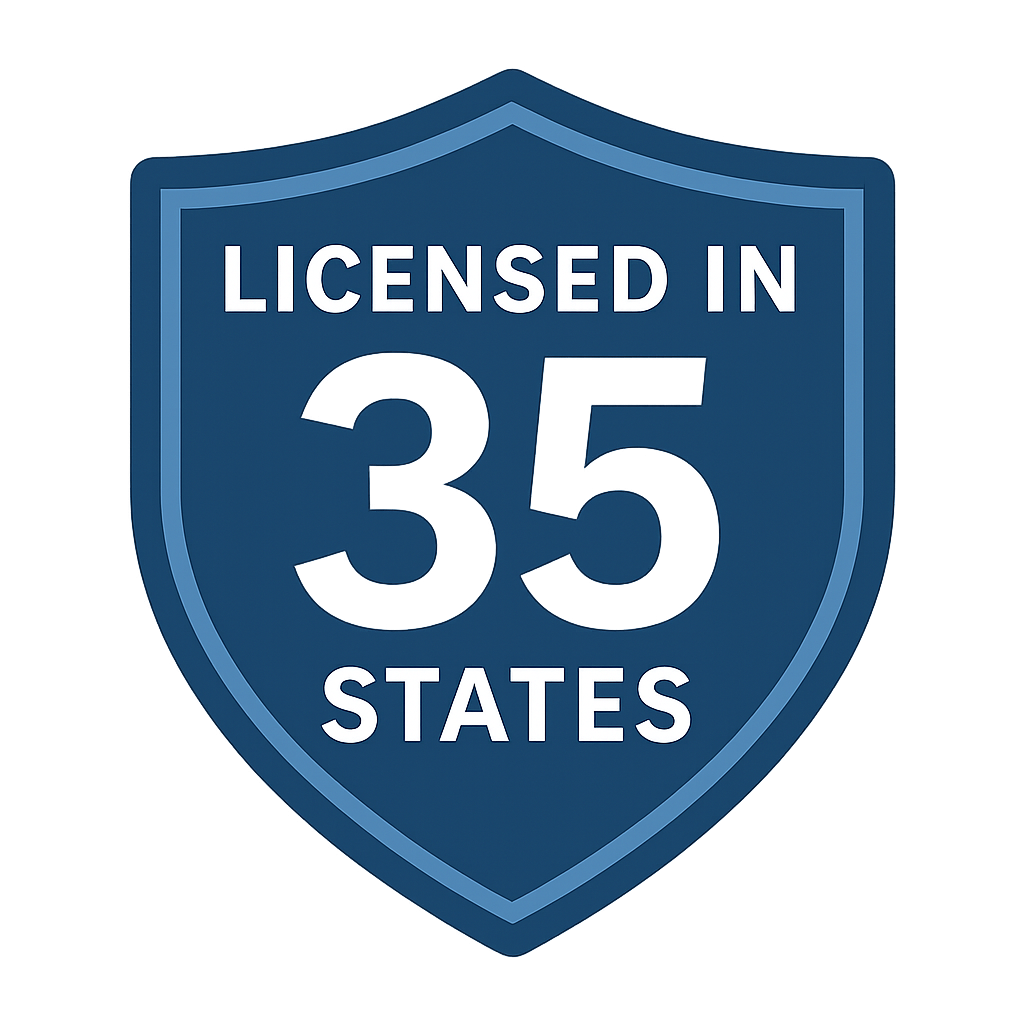Does My Auto Insurance Cover Rental Cars?
Discover whether your auto insurance policy covers rental cars and how to ensure seamless protection during your travels.
On this page
Overview
Policy Coverage Basics
Your auto insurance may extend collision and comprehensive coverage to rental cars, matching your personal vehicle’s protections. Liability coverage typically applies as well, safeguarding you against damages you cause. Always verify specifics with your insurer to avoid gaps.
Rental Car Reimbursement
This optional coverage pays for rental car costs if your vehicle is under repair after a covered claim. Limits vary by policy, often capping daily rates or duration. It ensures mobility during unexpected disruptions.
Rental Agency Add-Ons
Rental companies offer loss damage waivers or supplemental insurance, which may duplicate your policy’s coverage. Decline these if your auto insurance or credit card already provides protection. Compare costs to make informed decisions.
Understanding Rental Car Coverage in Auto Insurance
Navigating whether your auto insurance covers rental cars can save you time, money, and stress during travel or post-accident scenarios. Most standard auto policies extend liability, collision, and comprehensive coverage to rental vehicles, provided they match your insured car’s protections. However, policies differ, and assumptions without confirmation can lead to costly surprises.
Rental car reimbursement coverage, an optional rider, kicks in when your vehicle is sidelined due to a covered claim, like a collision or theft. This benefit covers rental fees within policy limits, typically $20–$50 daily, for a set period. Without it, you may face out-of-pocket expenses during repairs, especially if your car is in the shop for weeks.
Rental agencies push add-ons like loss damage waivers (LDW) or supplemental liability, often costing $10–$30 daily. These may overlap with your existing auto insurance or credit card benefits, so review your policy first. For instance, many credit cards offer secondary rental coverage, activating after your primary insurance.
State-specific rules influence coverage requirements, especially for liability in no-fault states. International rentals often require separate policies due to differing regulations. Always clarify with your insurer before signing rental agreements to avoid redundant purchases.
Learn more about how car insurance works to understand coverage extensions. Compare policies using auto insurance comparison tools to find plans with robust rental protections. For tailored guidance, explore questions about insurance resources.
Proactively checking your policy prevents unexpected costs. If coverage is limited, consider temporary add-ons or standalone rental insurance for peace of mind. A Plus Insurance helps you navigate these options to ensure seamless travel experiences.
Does my auto insurance automatically cover rental cars?
Most policies extend liability, collision, and comprehensive coverage to rentals, mirroring your vehicle’s protections. Confirm with your insurer, as restrictions may apply to vehicle types or locations. Unverified assumptions risk uncovered damages.
What is rental car reimbursement coverage?
It pays for rental car costs when your vehicle is being repaired after a covered claim. Daily and total limits apply, varying by policy. This keeps you mobile during downtime. Check what is full coverage car insurance for details.
Do I need rental agency insurance if I have auto coverage?
If your policy covers rentals, you may not need agency add-ons like loss damage waivers. Credit cards often provide secondary coverage too. Review both to avoid duplicate costs. Declining extras saves money.
Does my liability insurance apply to rental cars?
Yes, liability typically extends to rentals, covering damages or injuries you cause. Coverage limits match your personal vehicle’s policy. Verify with your insurer for exclusions. This ensures legal protection on the road.
Can my insurance cover international car rentals?
Domestic policies rarely cover international rentals due to differing laws. You may need separate coverage from the rental agency or a travel insurer. Confirm before traveling abroad. Local regulations dictate requirements.
How much does rental car coverage cost?
Rental reimbursement riders add $1–$5 monthly to premiums, depending on limits. Coverage caps daily rates, often $30–$50, and total duration. Higher limits increase costs slightly. Budget accordingly for convenience.
Will my deductible apply to rental car claims?
Yes, collision or comprehensive deductibles apply to rental car damages, just like your own vehicle. Rental reimbursement coverage has no deductible typically. Confirm specifics with your policy. This affects out-of-pocket expenses.
Does rental coverage include luxury vehicles?
Policies often limit rentals to standard vehicles, excluding luxury or specialty cars. Check your policy for eligible vehicle classes. Upgrades may require out-of-pocket payment. Restrictions prevent unexpected denials.
Can I get reimbursed for fuel or tolls in a rental?
Auto insurance typically excludes fuel, tolls, or additional fees like GPS rentals. Coverage focuses on the rental cost itself. Review your policy for extras. Plan for these separate expenses.
Does filing a rental car claim raise my rates?
Using rental reimbursement alone usually doesn’t impact rates, but the underlying claim might. At-fault accidents are more likely to increase premiums. Monitor post-claim adjustments. See why did my insurance rate go up for insights.
What is a loss damage waiver from a rental agency?
An LDW covers damage or theft of the rental car, waiving your responsibility. It’s often redundant if your policy or credit card covers rentals. Compare before purchasing. Declining saves significant costs.
Do credit cards offer rental car insurance?
Many credit cards provide secondary coverage, covering deductibles or gaps after your primary insurance. Some premium cards offer primary coverage. Verify terms with your card issuer. This reduces reliance on agency add-ons.
Can I use a friend’s car instead of a rental?
Your policy may cover non-owned vehicles you drive with permission, but confirm limits. Liability typically extends, but collision coverage varies. Notify your insurer to avoid disputes. Clarity prevents coverage gaps.
What if the rental car is damaged?
Your collision or comprehensive coverage applies, subject to deductibles. Report damage to both the rental agency and your insurer promptly. Document the incident thoroughly. Quick action ensures smooth claims.
Does my insurance cover rideshare rentals?
Standard policies exclude rentals used for ridesharing like Uber. Special commercial or rideshare endorsements are needed. Check with your insurer for options. This avoids claim denials for business use.
Does my insurance cover rentals during vacations?
Yes, if your policy extends to rentals domestically, it applies on vacation. International coverage often requires separate insurance. Verify geographic limits beforehand. This ensures protection wherever you travel.
What if I rent a car for business purposes?
Personal policies may exclude business use, requiring commercial coverage. Confirm with your insurer to add endorsements if needed. Misuse can void claims. Proper coverage aligns with usage.
Can multiple drivers use the rental under my policy?
Authorized drivers listed on your policy or rental agreement are typically covered. Unlisted drivers may face claim denials. Notify your insurer of additional drivers. This prevents coverage disputes.
Does my policy cover long-term rentals?
Short-term rentals are usually covered, but long-term ones may require special terms. Policies cap rental periods, often 30 days. Discuss extended needs with your insurer. Adjustments ensure continuous protection.
What if I don’t have comprehensive or collision coverage?
Without these, rental car damages fall to you or agency insurance. Liability still applies for third-party damages. Consider temporary add-ons for rentals. This bridges gaps in basic policies.
How can I confirm rental car coverage before renting?
Contact your insurer to verify coverage extensions and limits. Request a policy summary for rental clauses. Compare with agency offerings. Preparation avoids costly surprises.
Should I add rental reimbursement to my policy?
If you rely on your car daily, this rider ensures mobility during repairs. It’s affordable and practical for most drivers. Evaluate your budget and needs. See how much does car insurance cost for cost insights.
Can I decline all rental agency insurance?
Yes, if your auto insurance or credit card fully covers the rental. Confirm both sources to ensure no gaps. Declining saves significant daily fees. Double-check to avoid risks.
What documents should I keep for rental claims?
Retain the rental agreement, damage reports, and receipts. Photos of the rental’s condition help claims. Submit promptly to your insurer. Documentation speeds up processing.
How do state laws affect rental car coverage?
States like Florida or Michigan have no-fault rules, impacting liability claims. Minimum coverage requirements vary, affecting rentals. Check state-specific rules before renting. Resources like insurance requirements by state clarify details.
Comparing Rental Car Coverage Options
Explore different sources of rental car coverage to choose the most cost-effective solution.
Auto Insurance
Extends existing liability, collision, and comprehensive to rentals, often with no added cost.
Credit Card
Offers secondary or primary coverage, free with qualifying cards, but requires payment with the card.
Rental Agency
Provides LDW or supplemental insurance, convenient but costly, often duplicating existing coverage.
Last Updated on by Shawn Christie




